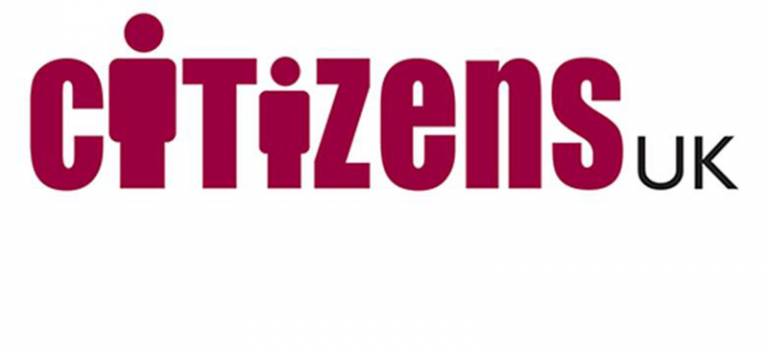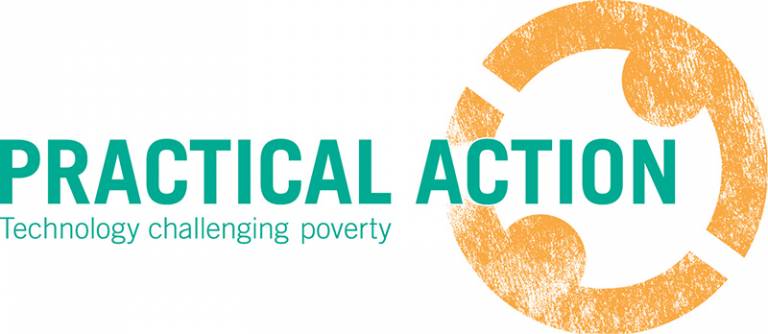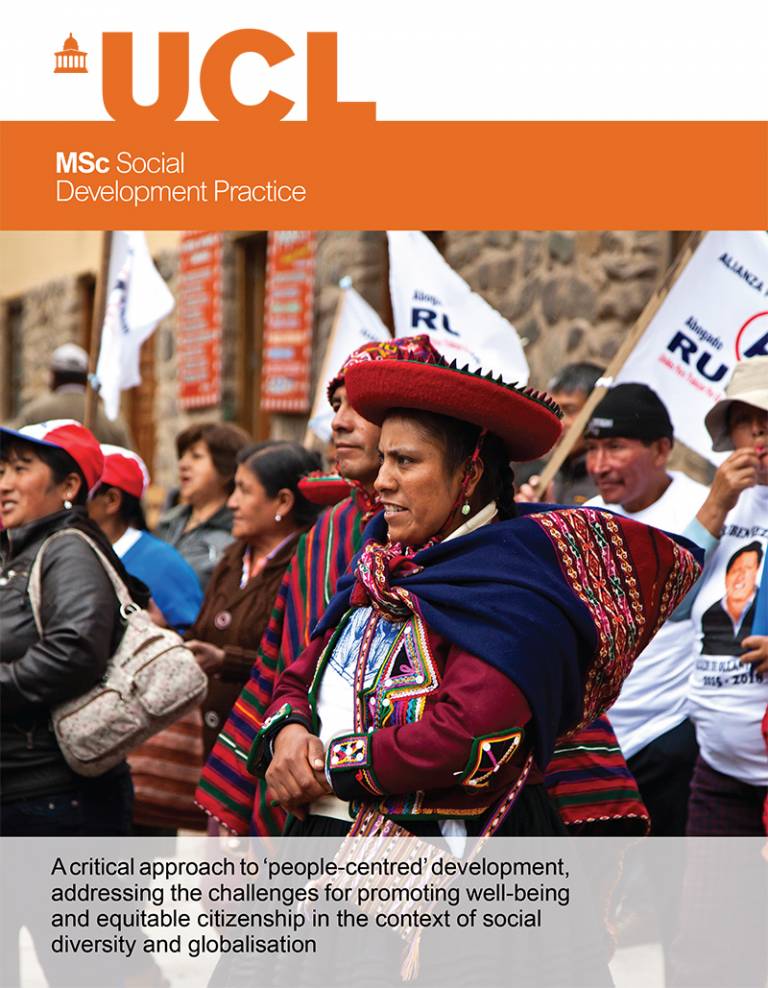Your options for study on the MSc Social Development Practice.
Core modules
BENVGSD1 Social Policy and Citizenship
Social Policy and Citizenship looks at socially sensitive development, which has its roots in social sector and social welfare models that were developed during the last century.
However, the evolution of social development policies since the Second World War has seen a change in emphasis from narrower conceptions of social sector development, to a broader, socially sensitive development approach, which attempts to place social transformation at the centre of development interventions across all sectors.
Across the historical evolution of social policy, we see differences in terms of the scope and remit of ‘social’ policy vis-à-vis economic policy; the coverage in terms of women and men reached; the objectives, whether instrumental, concerned with human wellbeing, or focused on social rights; and the ways in which the policy process attempts to involve grassroots women and men, and their representatives, in the identification of policy goals.
In the first term of this module, we introduce a framework to analyse the social content of development policy, and use this framework to evaluate the social, or socially sensitive, development policy models that have predominated in the different periods since the establishment of the United Nations and the Bretton Woods organisations in 1945.
In Term 2, we go on to explore how these policy arrangements are embedded in, and contribute to, wider citizenship arrangements. In particular we examine the roles of different actors from the public sector, the private sector and civil society and how their interactions can contribute to more active and inclusive models of citizenship in the context of an increasingly globalised society.
BENVGSD2 Social Diversity, Inequality and Poverty
Social Diversity, Inequality and Poverty explores social development beyond the confines of the ‘social sector,’ seeing it as an approach that attempts to put 'people' and social equity at the centre of development initiatives across all sectors. Yet ‘people’ comprise heterogeneous groups and individuals with multiple, intersecting and changing identities.
This implies conflicting interests and aspirations, as well as inequalities of power. As a result, putting people at the centre of development is highly problematic, and social development faces several challenges in achieving equitable and socially just development.
This module provides the conceptual tools to critically assess current development programmes from a social perspective. In Part One, we explore the theoretical debates that link diverse social identities and power relations, and the competing models of equity and justice that attempt to reconcile them.
We then examine the implications of these debates for Social Development as a ‘people-centred’ approach by considering how issues of diversity and power affect development interventions. With a focus on the urban context, we consider development practice and debates around concepts such as ‘participation’, ‘community’, ‘social capital’, and ‘local knowledge’ from a social diversity perspective.
Part Two of the module deals with different understandings, definitions and ways of measuring poverty – a key policy concern of the current development agenda. We explore the relationship between inequality and poverty as interrelated but distinctive concerns, and use conceptual tools relating to diversity and power to critically assess specific anti-poverty responses and approaches to local as well as global inequalities.
BENVGSD3 Social Development in Practice
Social Development in Practice is a practice-based module at the heart of the MSc programme. In this module we are concerned with exploring through practice the ways in which a socially sensitive approach can be integrated into development interventions in both northern and southern countries.
Drawing on the material studied in the other core modules, we recognise that such an approach must be based on the key ethical values of respecting and valuing diversity and of ensuring social inclusion in development interventions.
The group fieldwork components of the MSc course – in London during the first term, and abroad during the third – are central to this module, which involves the following four major components:
- A series of themed workshops to introduce key issues of development and governance that underpin the wider operational context of social development;
- A short off-campus immersion programme based around a problem-solving exercise intended to develop analytical, presentation, argumentation and negotiation skills and the ability to work in a team;
- A series of practical social development skills workshops intended to lay the foundation for and enhance professional practice, including the formulation of code of ethics;
- A series of preparatory fieldwork sessions addressing team building, the action research process, desktop research on the specific research context and a two-week fieldwork assignment.
Optional Modules offered by SDP
BENVGSD4 NGOs and Social Transformation
NGOs and Social Transformation focuses on the practice and politics of development NGOs. It explores how different NGOs address issues of identity and diversity and the extent to which they are able to represent and be accountable to their constituency.
The module also provides participants with an understanding of how NGOs conceptualise well-being, and reviews their ways of dealing with the complex identities and the diversity of beneficiaries. We draw on concrete examples in order to analyse the implications of funding models, organisational structures, cultures and approaches on specific development interventions.
The module engages with an emerging body of literature in critical development studies and anthropology of development, covering different theoretical approaches to NGOs, and analytical models of social change. Using NGOs as an entry point, the module explores issues of collective action and social transformation in development, and analyses the role of NGOs within the political economy of development. We explore
- the ways in which different NGOs and other development actors respond to a diversity of beneficiaries;
- how these actors build their concepts and theories of change and how they translate them into planned interventions;
- the role of partnerships between ‘northern’ and ‘southern’ NGOs, and the role of national, regional and global coalitions and networks;
- NGOs’ relationships with grassroots organisations and governments, exploring the differences between NGOs and social movements and their complex relationship, and;
- NGOs’ different operational roles in various contexts, including ‘failed’ states, humanitarian emergencies and new democracies.
BENVGSD5 Communication, Technologies and Social Power (not running in 2016-17)
Communication, Technologies and Social Power aims to engage critically with a series of communication practices (such as participatory photography and video, theatre for development, and social media) that are used to support groups in processes of recognition and mobilization in the context of urban contestations.
While there has been an increasing recognition of the need to open up spaces of direct participation for urban citizens to influence decision-making processes in recent years, there has also been increasing skepticism towards the potential of such spaces to bring about substantive change addressing the causes of urban injustices.
Responding to these tensions, thinking and practice in the field of communication studies has reflected on the potential of different mediums of social mobilization and networking to avoid co-optation and open up more transformative spaces of participation.
This module aims to engage critically with the relationship between communication and social change, exploring specific sets of practices and their potential in supporting groups in processes of recognition and mobilization in contexts of urban contestation.
Students are encouraged to explore and define the meaning of ‘emancipatory communication practices’, by drawing on case studies and literature from the field of development communication as well as communication activism.
Optional modules offered by other Masters in the DPU
(please note that enrolment onto each module is subject to places being available)
BENVGBU2 Participatory Processes: Building for Development is concerned with highlighting how the collective power of many small changes can be harnessed to effect realistic and creative urban transformations.
Through the analysis of theoretical readings, exercises and case studies, this module is designed to give students a structured understanding of participatory interventions in urban development planning. It sets out to present different participatory concepts and processes, and engage students in critically reflecting on the issues, limitations, but also innovative potential they present.
Students will learn about different participatory, tools and techniques and encouraged to think creatively about how public leadership and participation can be supported, mobilised and promoted to help improve democratic decision-making in the design of the built environment.
Throughout the term, students will also be tackling key questions around the role of design, knowledge production and the role of the expert practitioner in delivering a collective urban future that is just and sustainable.
BENVGBU6 Disaster Risk Reduction in Cities provides a detailed examination and structured understanding of Disaster Studies and Disaster Risk Reduction, with specific reference to urban areas.
It engages with extreme condition of disasters and their social, physical and political implications on urban areas, the built environment and planning disciplines.
Drawing from current research on the urban turn in Disaster Studies and the entanglements between Disaster Risk Reduction, Development processes and Urban Poverty, the module offers an introduction to the debate on urban resilience and its policy implications.
BENVGBU7 Post Disaster Recovery: Policies, Practices and Alternatives provides a detailed and critical examination of post-disaster recovery practices and policies, with a particular focus on its institutional arrangements and socio-spatial implications.
Drawing from transnational research experiences and connections with practitioners, humanitarian workers and development managers, the module reflects on the different challenges posed when working in a post disaster environment and implementing plans, projects and interventions.
BENVGBU8 Critical Urbanism Studio I - Learning from Informality: Case Studies and Alternatives Cities everywhere are being created without any architects or planners involved. An often quoted statistic is how almost 1 billion people live in informal settlements.
Initiatives are trying to manage and control this informality in cities. With these unique challenges in mind, this module questions the definition of urbanism towards one that is social in nature and asks, what and for whom urbanism is for?
Through case study analysis this module presents how informal urban territories are imagined and constituted and serves as an opportunity to interrogate the role of design, architecture and urbanism in such contested urban settings. It encourages students to critically appraise this radical form of urban design and building of cities and seeks to underscore what could be learnt from such phenomena.
The module is delivered in a studio based format, where students are tasks with delivering their own holistic and strategic urban design intervention to tackle a particular case study.
BENVGBU9 Critical Urbanism Studio II - Investigative Design Strategies for Contested Spaces builds on the Critical Urbanism Studio of BENVGBU8 approach for students who want to gain more experience in investigative urban analysis and development of design strategies.
It focuses on phenomenological investigation as a different way of seeing people and place to engage with the multiplicity of contested developing arenas. Learning evolves around a real-life contemporary urban case study developed in collaboration with a partner in the Global South but worked on remotely in the studio.
As students work on the case study, they are encouraged to use this as a platform to reason with the aesthetics of informality and experiment with the design process as act of critique and resistance that puts the communities at the centre of the place.
BENVGBUA Housing as urbanism: housing policy and the search for scale reflects on the evolution of ideas and practices in the field of housing policies, in their direct connection with the wider context of development theories and strategies.
It explores the changes in the role of different stakeholders, in the understanding of the multiple articulations of housing and urbanism and in the meaning and tools of scaling-up in housing provision.
It pays particular attention to the convergence of debates on informality and housing as central to a major paradigmatic shift at conceptual and policy levels which will affect the direction of housing strategies far beyond just questions of informal housing.
BENVGBUB Housing policies: practical dimensions and alternative options focuses on how interventions in housing can build on a complexity of sectoral inputs to produce multiple pro-poor development outcomes. Participants are exposed to a range of approaches to housing and settlement upgrading policy and practice.
The roles of the state, market and civil society in housing and settlement upgrading are examined in different national contexts. The importance of land, finance, infrastructure, organisational capacity and governance are emphasised as well as the longer-term sustainability of different approaches.
Participants have an opportunity to work in small groups to track and analyse the historical development and implementation of housing policy within a specific country. They are also expected to develop a personal case study that demonstrates how the interaction between personal and political contexts results in differing housing outcomes.
BENVGDA5- Neo-Structuralism and the Developmental Stateconsiders differing conceptions of the state as a primary agent in social and economic development processes by examining case studies from Africa, Asia, Latin America and the Caribbean.
This module also seeks to familiarise the student with the opportunities and constraints posed by the global integrated process of production to planning for independent styles of development. Students are assessed with a written assignment.
BENVGDA8- Political Economy of Development: Land, Food and Agriculture aims to expose students to the inextricable linkages between agricultural policy, land allocation, food insecurity (local and global), good governance, conflict, and famine, and to consider how these elements impact people living in poverty in both rural and urban areas in the developing world. Students are assessed with a written assignment.
BENVGDA9- Political Economy of Development: Industrialisation and Infrastructure seeks to critically examine the contribution of industrialisation and infrastructure to national, regional and local development in the Global South. By focusing on these two issues, which often stand at the centre of national/local government policies, the module looks in detail at some of the forces that help shape national development from both a theoretical and an empirical viewpoint. Students are assessed with a written assignment.
BENVGES5 Adapting Cities to Climate Change in the Global South aims to provide participants with an understanding of the ways in which climate change will affect urban areas in low- and middle-income countries.
BENVGES6 Sustainable Infrastructure and Services in Developmentexamines the different ways in which urbanisation is unfolding across the global South, with specific attention to the creation of infrastructures and the delivery of essential services. It explores the underlying causes of urban fragmentation, social exclusion and unsustainability.
BENVGES7 Urban Water and Sanitation, Planning and Politicsfocuses on the challenges of and opportunities for the adequate provision of urban water supply and sanitation. It examines innovative 'policy-driven' and 'needs-driven' approaches to the provision of the services, for and with the urban and peri-urban poor.
BENVGES8 Food and the City looks at urban food security with long-term sustainability and resilience in face of crisis and extreme weather.
BENVGES9 Urban and Peri-Urban Agriculture: Knowledge Systems in the Global South provides a critical examination of the historical evolution and the negative impact of industrial agriculture and its consequences for small holder urban and peri-urban food production and knowledge systems in the Global South.
BENVGPU1 The City and Its Relations: Context, Institutions and Actors in Urban Development Planning explores the economic, social and physical change of cities in the wider context of development and globalisation.
BENVGPU4 Gender in Policy and Planning is an 18-session module over two terms examining gender relations in the socio-economic, political and environmental processes in the development of human settlements.
BENVGPU5 Transport Equity and Urban Mobility focuses on the relationships between social identity, transport and planning in the context of urban development in the Global South. It critiques and explores the implications for transport planning and its interaction with other kinds of planning, and the relationships between the state, civil society and private sector in the provision of transport for more socially just cities.
BENVGUE2 Managing the City Economy enables participants to develop a critical understanding of the key components and operating dynamics of the city economy, and the factors that underlie urban productivity.
BENVGUE4 Urbanisation and Development addresses the prospect for development in a context of international trade and investment, with the role of the state and effects of policies as key underlying factors.
BENVGUE5 Cost Benefit Analysis: Theory and Practice covers the economic assessment of projects and policies using cost-benefit analysis techniques, furthermore the evaluation of trends and developments and other issues relevant to urban economic policies will be explored.
BENVGUE6 An Introduction to Public Economics and Public Policy deals with identifying the most common market failures, the drivers of government failures and the interactions between economics and politics as constraints on the design of public policies.
 Close
Close





